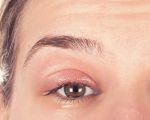How to Care for Eyes After Cataract Surgery
After cataract surgery, taking proper care of your eyes is essential to ensure a smooth recovery and achieve the best possible results. Having undergone cataract surgery myself, I can personally attest to the importance of following the right aftercare steps to ensure my vision improved and stayed protected. In this article, I’ll walk you through the crucial aspects of eye care after cataract surgery based on my experience, as well as expert recommendations. From managing discomfort to keeping your eyes safe from infection, these tips will guide you on the road to recovery.
1. Understanding the Importance of Post-Surgery Care
Immediately after cataract surgery, the lens of your eye is replaced, which can lead to clearer vision and an enhanced quality of life. However, as with any surgery, the healing process is essential for optimal results. It’s important to follow your doctor’s instructions carefully to avoid complications like infection, inflammation, or discomfort. For example, my surgeon gave me a specific set of instructions that I followed closely, which helped me avoid any setbacks and ensured my recovery went smoothly.
One of the main things to keep in mind is that you must protect the eye that was operated on. After cataract surgery, your eye will be more sensitive, and you need to avoid touching, rubbing, or exposing it to contaminants. I remember being advised not to lift heavy objects or bend over too quickly during the initial recovery phase, as these activities could increase pressure in the eye.
2. Use of Prescription Eye Drops
After my cataract surgery, one of the most important parts of my recovery was using the prescribed eye drops. These drops were crucial for preventing infection and reducing inflammation. I was instructed to use them several times a day for a few weeks after the surgery. The prescribed eye drops were not just antibiotics, but also anti-inflammatory medications that helped reduce any swelling or irritation. Not using the drops as directed could have delayed healing or even led to complications, so I made sure to follow my doctor’s advice closely.
For anyone recovering from cataract surgery, be prepared to manage multiple medications. I found it helpful to set reminders on my phone to ensure I didn’t miss any doses. This simple step kept me on track and helped reduce the risk of infection and discomfort.
3. Protecting Your Eyes from Potential Harm
One of the most important pieces of advice I received was to protect my eyes from potential injury or contamination, especially in the first few weeks after surgery. During this time, I was careful about avoiding direct sunlight and bright lights, which could irritate the healing eye. I made sure to wear sunglasses whenever I stepped outside. The glasses not only provided comfort but also helped shield my eyes from dust, wind, and other irritants that could delay healing.
My doctor also recommended that I sleep with a protective shield over my eye during the first few nights after surgery. This was to prevent me from accidentally rubbing my eye while I slept. It might sound uncomfortable, but I quickly adapted and found it to be an essential part of my recovery process.
4. Managing Discomfort and Redness
During the early days of recovery, it’s common to experience some discomfort or redness in the eye. I personally experienced mild itching and a gritty feeling, which is typical after cataract surgery. I was advised not to rub my eye, as it could disrupt the healing process and increase the risk of infection. Instead, I used cold compresses for relief. A cold compress can help reduce swelling and soothe the area around the eye. However, it’s important not to apply too much pressure, as it can harm the delicate tissue of your eye.
If you experience any unusual pain, sharp discomfort, or changes in vision after cataract surgery, it’s essential to contact your doctor right away. While some mild irritation is normal, severe pain or vision changes can signal complications that need immediate attention.
5. Returning to Daily Activities
Getting back to daily activities after cataract surgery is something I looked forward to, but it’s important not to rush the process. I was advised to avoid activities like driving or strenuous exercise for at least a week or two after surgery. This gave my eyes the time they needed to fully heal. I found that even simple tasks like reading or using my phone required some time for my eyes to adjust, as the new lens settled into place.
It’s also important to refrain from swimming for at least two weeks post-surgery. I was told that swimming pools and hot tubs could introduce bacteria into the eye and increase the risk of infection. I patiently waited until I received clearance from my doctor to return to my regular activities.
6. Follow-up Appointments
After my surgery, I had a series of follow-up appointments with my ophthalmologist to ensure my recovery was progressing well. These check-ups were critical, as they allowed my doctor to monitor the healing process and catch any potential issues early. During these visits, my vision was tested to make sure the lens was properly aligned, and my eye pressure was checked to avoid complications like glaucoma.
It's essential not to skip these follow-up appointments, as they are a key component of your recovery process. Be sure to schedule and attend all recommended visits, and don’t hesitate to contact your doctor if you have any concerns during your recovery period.
OLD Keywords-51: SEO Title: How to Care for Eyes After Cataract Surgery SEO Keywords: cataract surgery recovery, eye care after cataract surgery, cataract surgery healing tips, cataract surgery eye drops, how to care for eyes after surgery SEO Description: Discover the essential steps to care for your eyes after cataract surgery. Learn tips on eye drops, protecting your eyes, managing discomfort, and getting back to daily activities safely.







